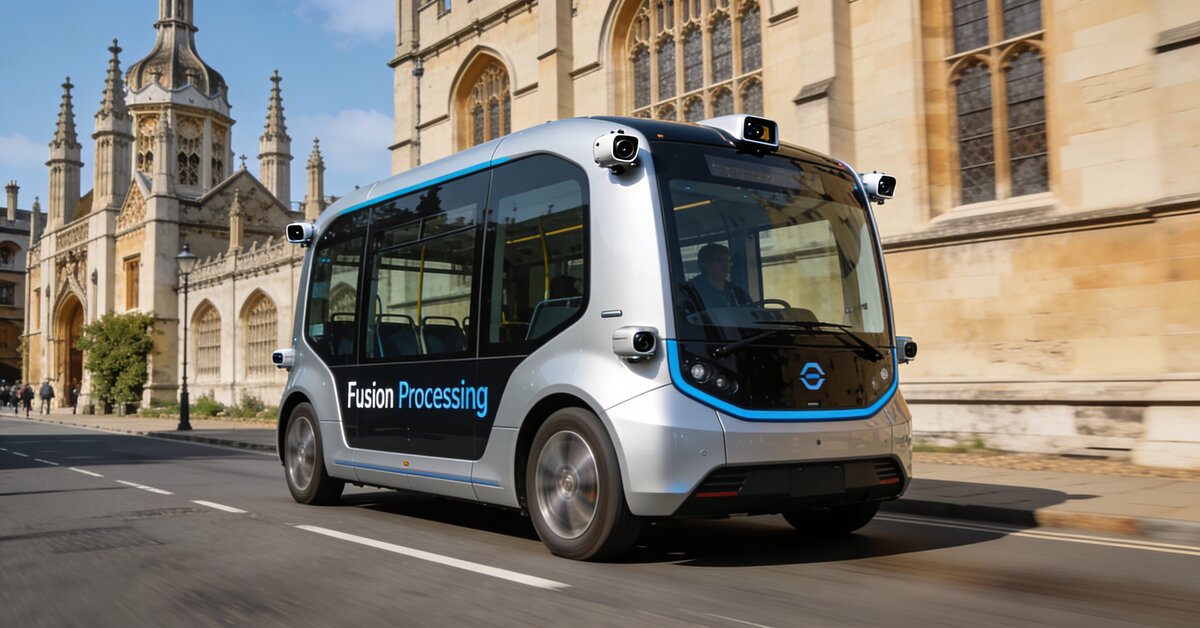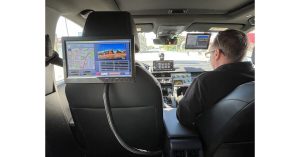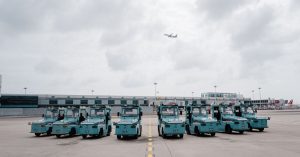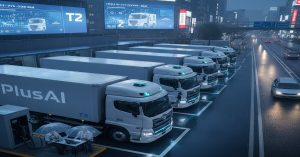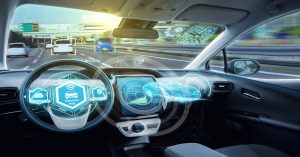Cambridge has officially welcomed its first automated bus service with the launch of passenger operations on the Connector project, led by Fusion Processing. This marks a significant milestone in the development of self-driving public transport in the UK, as the city becomes one of the first to implement continuous autonomous bus services in a real-world urban environment.
The initial service is being operated using a Mellor Orion E electric midi bus, a fully electric and environmentally friendly vehicle fitted with Fusion’s advanced CAVStar automated drive system. Later this year, two larger 8.5-metre Alexander Dennis Enviro100AEV buses will join the fleet to expand the service. Each vehicle has been retrofitted with autonomous capabilities but will include a safety driver on board during the trial phase to ensure passenger safety and monitor performance in live traffic conditions.
The Connector project’s first route connects the Madingley Road Park & Ride site with the University of Cambridge’s Eddington neighbourhood and the Cambridge West Innovation District. The free service aims to enhance local travel options, making it easier for residents, workers, and students to access key destinations including education, employment, community, and sports facilities.
This innovative project is being delivered in collaboration with several key partners. It is led by the Greater Cambridge Partnership and supported by funding from Innovate UK and the Centre for Connected & Autonomous Vehicles (CCAV). Additional consortium members include Alexander Dennis Limited, IPG Automotive, dRISK, Whippet Coaches, and Fusion Processing.
Jim Hutchinson, CEO of Fusion Processing, emphasized the broader implications of the launch: “This is a landmark moment for autonomous transport in the UK. Our CAVStar system is already proving how automation can increase safety while delivering major cost and energy efficiencies. As demand for automated transport systems grows in the UK and beyond, Fusion is proud to be leading the way.”
Before entering service, the vehicles underwent rigorous off-road track testing, followed by supervised runs on public roads without passengers to assess interactions with cyclists, pedestrians, and other vehicles. Now, with that preparatory phase complete, the project is moving forward to welcome passengers on board.
Whippet Coaches, the bus operator overseeing the service, also expressed enthusiasm for the project. “We’re excited to welcome passengers on this pioneering service,” said Ed Cameron, Director at Whippet. “Public transport plays a critical role in sustainable mobility, and this project shows how cutting-edge technology can shape its future.”
Dan Clarke, Head of Innovation and Technology at the Greater Cambridge Partnership, noted that the service is being introduced gradually. “People in the area may have already seen the automated buses operating in recent weeks as part of our early road trials. Now, we’re carefully transitioning to public use so we can collect valuable data and gain insight into how the public interacts with this new form of transport.”
As the Connector project moves forward, it aims to demonstrate the practical benefits of self-driving buses—improving safety, accessibility, and sustainability across Cambridge’s public transport network.

